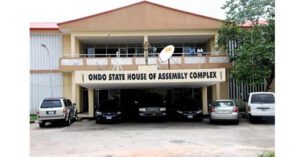
Real estate market 2022: Inflation-induced hike in building materials hits home-seekers, developers hard
By Wilson Adekumola
The real estate sector in Nigeria has been facing some difficulties as the rising cost of building materials continues to have significant bearing on rentals and the cost of delivering affordable housing for citizens.
The current inflation fighting mode is having adverse effect on many real estate developers.
Experts have lamented inflation rate in the Country, linking it to the Country being a consuming and not a producing nation.
The situation has put the developers or house managers on sad mood, lamenting they are not enjoying the best of their time in the industry.
The development has informed upward review of prices of housing units in developers’ stocks, while there has been issue with delay in delivering projects timely due to the economic meltdown.
Other issues of concern include, the cost of acquiring land, unavailability of skilled labour, fluctuating foreign exchange, logistics problems and bottlenecks in supply chains that affected projections negatively.
The prices of essential building reinforcement, sand, roofing sheets, ceiling, iron rod, paints, plumbering materials, tiles, cement and granite have increased geometrically in the recent past.
For instance, cement that was sold for N4,l000 early 2022 increased to N4,500, 30 tonnes of granite sold for N180,000 increased to N250,000, 10 tonnes of sharp sands which was earlier about N80,000 increased to N120,000 and so on.
It is pertinent to note that building materials has been playing a vital role in the construction industry.
The building materials industry is believed to be the life nerve of the economy of the built industry, because of it’s output impact on both rate and quality of construction work.
It also constitute the largest single input in housing construction with 60 per cent of the total house expenditure used for the purchase of building materials, while the remaining 40 per cent is to be spent on labour.
Experts in the industry have argued that the price of building materials is the main factor that put limit in the supply of housing, hence, fall in real estate as the price of materials hit the roof.
It was gathered that, the average cost of building materials in Nigeria went up by 35.75 per cent in the first half of 2022 compared to the same period in 2021.
The statistics were revealed in a report that was gathered by Northcourt Real Estate, titled, “Half Year 2022 Nigeria Real Estate Market Review”.
It maintained further that, “the rising cost of building continues to have a native influence on the real estate.”
This development has consequently affected the price of rentals in major cities such as, Lagos, Ogun, Ibadan, Abuja, Port Harcourt and Kano with landlords and property developers influenced to increased rent at least by 80 per cent recently.
It is also important to bear in mind that most residents who are victims of this hassle of homeowners and house developers because of the increase due to the soaring price of building materials, in these cities, are lamenting the increase on rent and cost of housing unit.
The question has been how and when government will intervene by creating a system or enabling environment that will make the low-income earners own a house?



